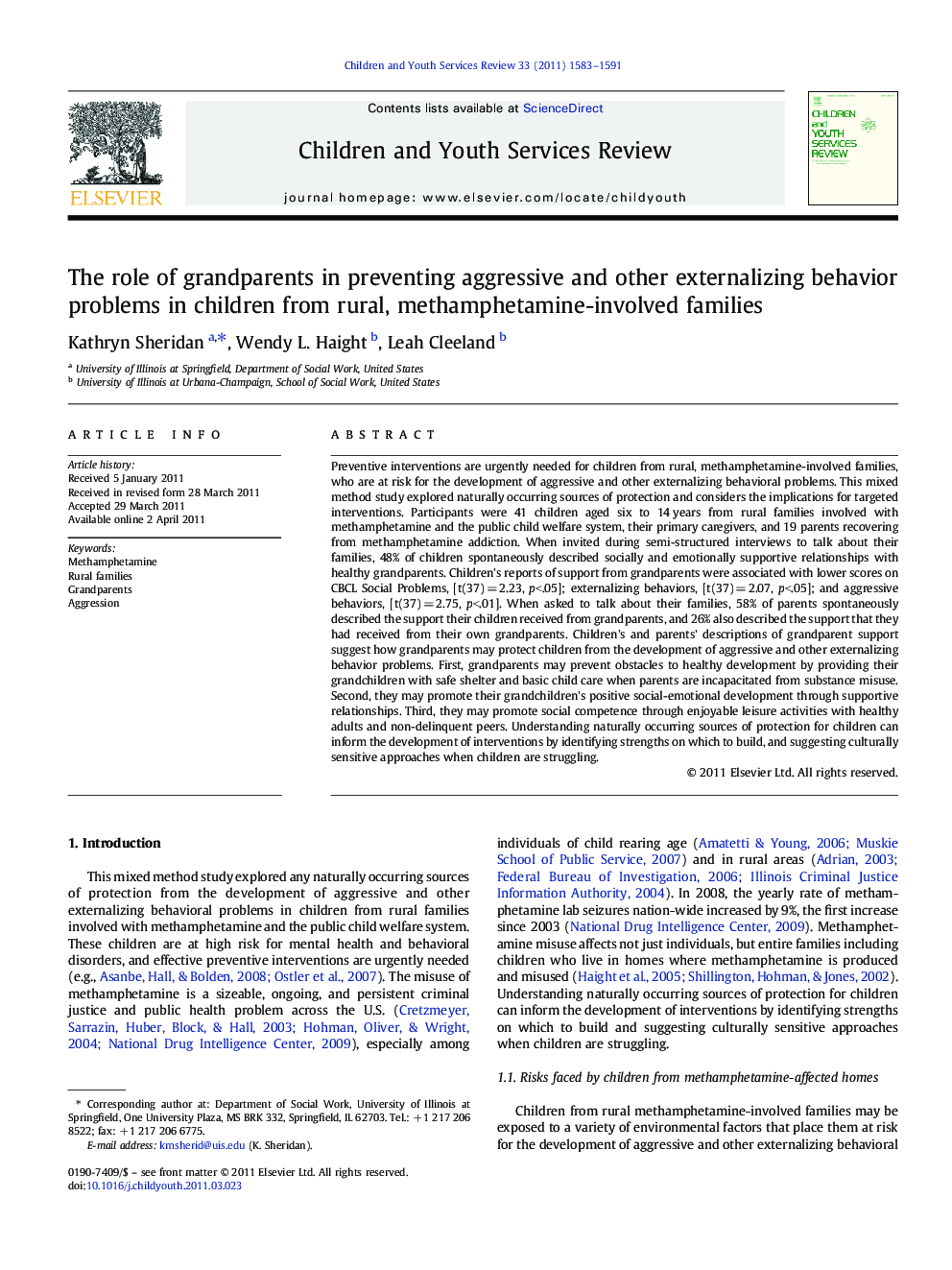| Article ID | Journal | Published Year | Pages | File Type |
|---|---|---|---|---|
| 346143 | Children and Youth Services Review | 2011 | 9 Pages |
Preventive interventions are urgently needed for children from rural, methamphetamine-involved families, who are at risk for the development of aggressive and other externalizing behavioral problems. This mixed method study explored naturally occurring sources of protection and considers the implications for targeted interventions. Participants were 41 children aged six to 14 years from rural families involved with methamphetamine and the public child welfare system, their primary caregivers, and 19 parents recovering from methamphetamine addiction. When invited during semi-structured interviews to talk about their families, 48% of children spontaneously described socially and emotionally supportive relationships with healthy grandparents. Children's reports of support from grandparents were associated with lower scores on CBCL Social Problems, [t(37) = 2.23, p<.05]; externalizing behaviors, [t(37) = 2.07, p<.05]; and aggressive behaviors, [t(37) = 2.75, p<.01]. When asked to talk about their families, 58% of parents spontaneously described the support their children received from grandparents, and 26% also described the support that they had received from their own grandparents. Children's and parents' descriptions of grandparent support suggest how grandparents may protect children from the development of aggressive and other externalizing behavior problems. First, grandparents may prevent obstacles to healthy development by providing their grandchildren with safe shelter and basic child care when parents are incapacitated from substance misuse. Second, they may promote their grandchildren's positive social-emotional development through supportive relationships. Third, they may promote social competence through enjoyable leisure activities with healthy adults and non-delinquent peers. Understanding naturally occurring sources of protection for children can inform the development of interventions by identifying strengths on which to build, and suggesting culturally sensitive approaches when children are struggling.
Research highlights► Grandparent support associated with lower scores on CBCL externalizing behaviors. ► Grandparent support associated with lower scores on CBCL aggressive behaviors. ► Grandparents may promote positive social–emotional development through relationships. ► Grandparents may promote social competence through activities with healthy adults. ► Naturally occurring sources of protection for children informs development of interventions.
